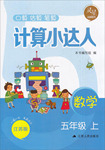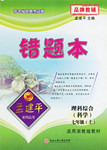题目内容
29. with the payment, he took the job just to get some work experience.( as)
尽管他对工资不满意,他还是选了这份工作,就为了获得一些工作经验。
29. Unsatisfied as he was考查让步状语从句。as引导让步状语从句时,可把句中所强调的形容词、副词、动词或名词放在连词前,表示"虽然…… 但是……",若提前的是可数名词单数,要省略不定冠词。

练习册系列答案
 灵星计算小达人系列答案
灵星计算小达人系列答案 孟建平错题本系列答案
孟建平错题本系列答案
相关题目